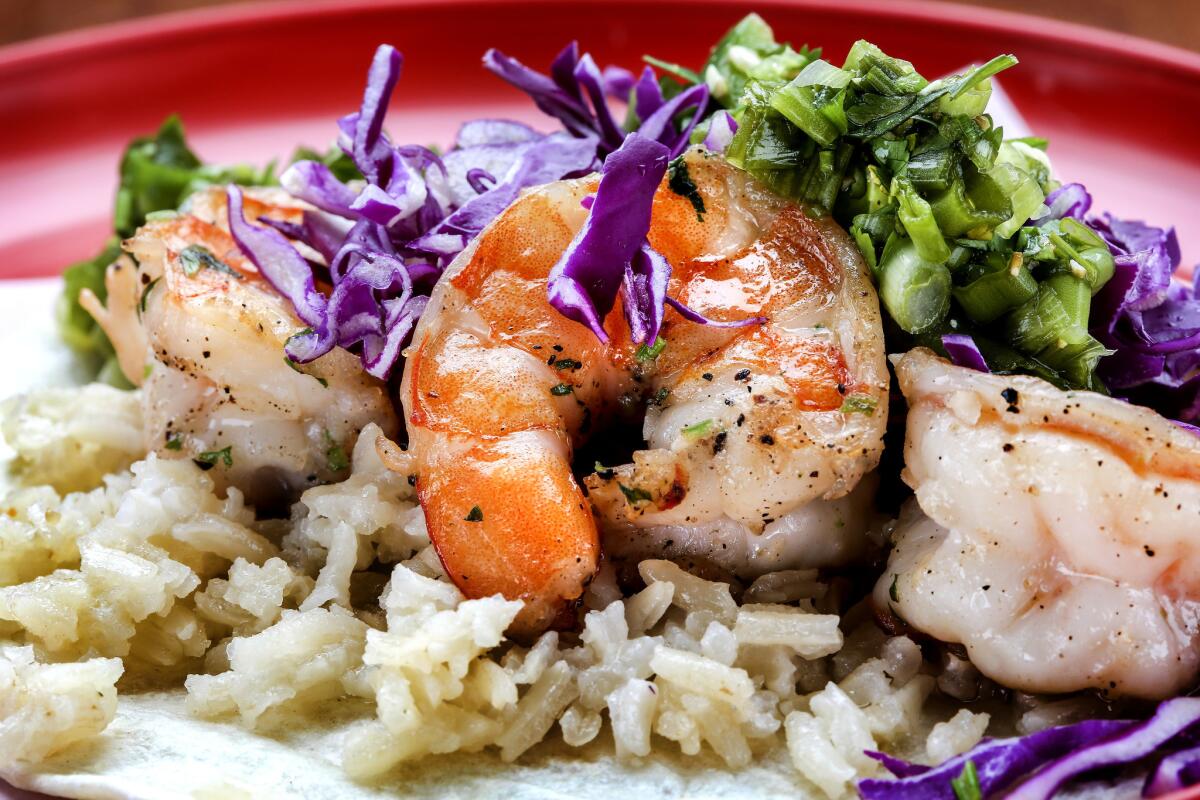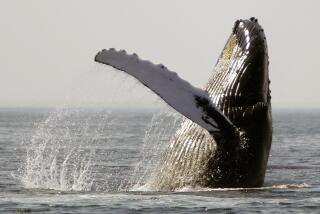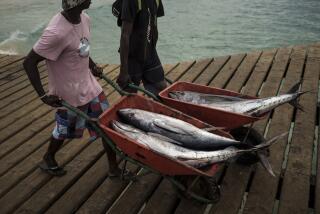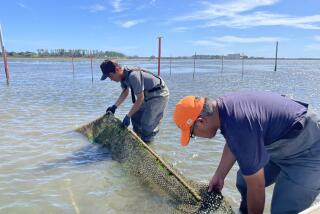Another threat from climate change: bad-tasting shrimp

Some of the consequences of climate change are obvious -- shrinking polar ice caps, rising sea levels, more damaging floods -- and some are subtle. Among the latter, we can now add bad-tasting seafood.
So concludes a team of researchers led by Sam Dupont of the University of Gothenburg, Sweden, recently published in the Journal of Shellfish Research. They tested shrimp raised for three weeks in seawater of average pH versus shrimp raised in acidic waters, similar to conditions that may prevail as the continued emission of excess carbon dioxide turns the oceans more acidic.
They found that acidic conditions make the shrimp distinctly less palatable to human tasters. The researchers offered each of a panel of 30 local Swedish connoisseurs a plate of shrimp prepared by a professional chef, and asked them to rank the shellfish. Shrimp from the normal waters were more likely to be judged the best on the plate, while those from acidic waters were more likely to be judged the worst.
Itâs tempting (so to speak) to consider the taste of shrimp negligible as the effects of climate change go, but âsensory quality,â as the researchers put it, has serious implications. Itâs a marker for the economics of the shellfish industry, which is of crucial importance all over the world, including coastal America. Ocean acidification, the researchers observe, is already blamed for a sharp reduction in the oyster harvest on the West Coast over the last decade, imperiling a $270-million industry. Shrimp landings from Northern European waters have declined, but the researchers didnât speculate on the reasons.
Seafood is an important source of protein for the human population, and likely to become more important. Research into factors that could affect the viability of the seafood industry, including the palatability of the product, shouldnât be lightly dismissed.
Thereâs also the question of the position of shrimp and other shellfish in the marine food chain. If climate change makes these food sources less palatable to their normal predators, that could mean a serious disruption in the marine ecosystem. Judging how cod, for which shrimp are a major food source, will take to changes in their preyâs taste is obviously impossible based on a human taste test, but the question needs to be studied.
One other aspect of the research into the taste of shrimp should be noted: Itâs another way of bringing home to the public the consequences of climate change.
âThe fact that ocean acidification can have a detectable impact on shrimp sensory quality,â the researchers wrote, âcan be a unique opportunity to communicate about global changes effectively.
âCan you imagine Scandinavia without a shrimp sandwich?â they asked. âCan you taste climate change?â
Keep up to date with the Economy Hub. Follow @hiltzikm on Twitter, see his Facebook page or email [email protected].
More to Read
Sign up for Essential California
The most important California stories and recommendations in your inbox every morning.
You may occasionally receive promotional content from the Los Angeles Times.











